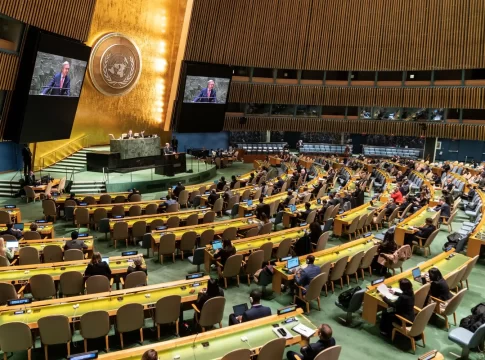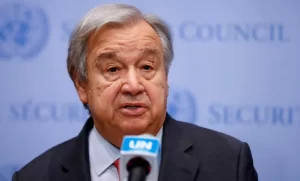As the world confronts a maelstrom of conflicts and crises, the annual United Nations gathering this week brings a vital message to leaders: it is time to close old inherited cases, conclude a sustainable two-state solution for Israel and Palestine, and address other long-standing diplomatic issues with bold decisions and strategic plans.
UN Secretary-General Antonio Guterres has urged leaders to recommit to multilateralism and revamp the international institutions created post-World War II. The goal is to better address today’s fast-evolving threats, from climate change to unregulated technologies like artificial intelligence.
“The summit was born out of a cold, hard fact: international challenges are moving faster than our ability to solve them,” Guterres remarked. He emphasized the urgent need to address “out-of-control geopolitical divisions” and unrestrained conflicts that plague our world today.
The two-day Summit of the Future commenced on Sunday, resulting in the approval of the “Pact of the Future.” This 42-page document serves as a comprehensive blueprint to tackle global challenges and reform international institutions. Its success, however, depends on the commitment and implementation by the Assembly’s 193 member nations.
“Leaders must ask themselves whether this will be yet another meeting where they merely talk about greater cooperation and consensus or whether they will have the imagination and conviction to actually forge it,” said Agnès Callamard, Secretary-General of Amnesty International. “If they miss this opportunity, I shudder to think of the consequences. Our collective future is at stake.”
This summit sets the stage for the high-level meeting of world leaders in September, focusing on unresolved conflicts like those in Gaza, Ukraine, and Sudan. The pressing need for a two-state solution for Israel and Palestine is expected to be a central theme.
U.S. President Joe Biden, making a significant appearance, emphasized the need for progress and hope. U.S. Ambassador Linda Thomas-Greenfield stressed the importance of ending wars, noting that roughly 2 billion people live in conflict-affected areas.
Slovenia, holding the council’s rotating presidency this month, chose “Leadership for Peace” for its high-level meeting, challenging its 15 member nations to address why the UN body responsible for maintaining international peace and security is failing and how it can improve.
“We live in a world of grim statistics, with the highest number of ongoing conflicts, record-high casualties among civilians, humanitarians, medical workers, and journalists,” noted Slovenian UN Ambassador Samuel Zbogar. He highlighted the displacement of 100 million people due to conflict, emphasizing the urgent need to rebuild trust.
The Security Council’s dysfunction, exacerbated by the deep division among its five veto-wielding permanent members, poses a significant barrier to effective action. The U.S., a staunch ally of Israel, supports Ukraine, while Russia, having invaded Ukraine, maintains a partnership with China.
In conclusion, the United Nations stands at a critical juncture. The need for bold decisions, building trust, and synchronizing efforts has never been more crucial. Leaders must transcend mere rhetoric and show the imagination and conviction to forge a unified path forward. The survival of humanity and the planet depends on it. With resolute action and strategic planning, the international community can address old conflicts and prepare for future challenges, ensuring a sustainable and peaceful world for generations to come.



